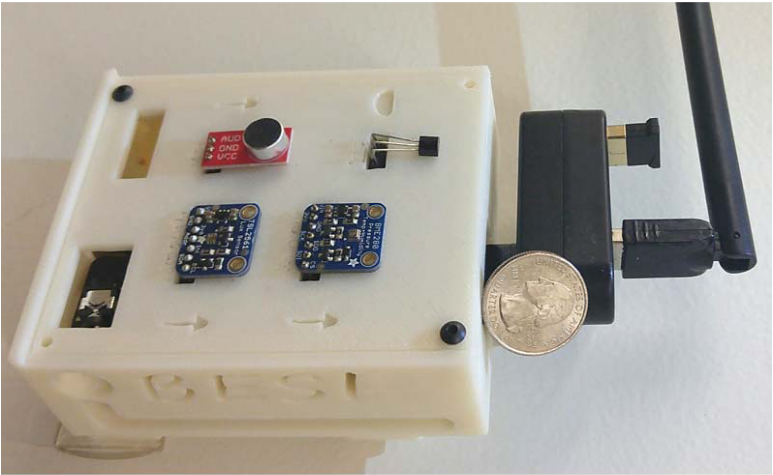Improving Dementia Patient and Caregiver Quality of Life
A significant source of stress for both dementia patients and caregivers are the agitation episodes that a patient may undergo. However, the occurrence of an agitation episode is not a certainty. If a caregiver is able to intervene at the right time, an agitation episode can be wholly prevented, thereby improving the quality of life of both the patient and the caregiver, especially if this prevention can be consistenly replicated over time.
The goal of the Behavioral Sensing and Intervention (BESI) project was to build a system capable of determining when a dementia agitation episode is about to occur, and informing the caregiver so that they may intervene to try to prevent the agitation.
In this project, I worked on designing PCBs in Eagle ECAD, housings for 3D-printed housings in SolidWorks, software to integrate the system, and an Android application to collect user feedback.

Publication#
- BESI: Reliable and Heterogeneous Sensing and Intervention for In‑Home Health Applications. R. Alam, J. Dugan, N. Homdee, N. Gandhi, B. Ghaemmaghami, H. Meda, A. Bankole, M. Anderson, J. Gong, T. Smith‑Jackson, J. Lach CHASE, 2017.